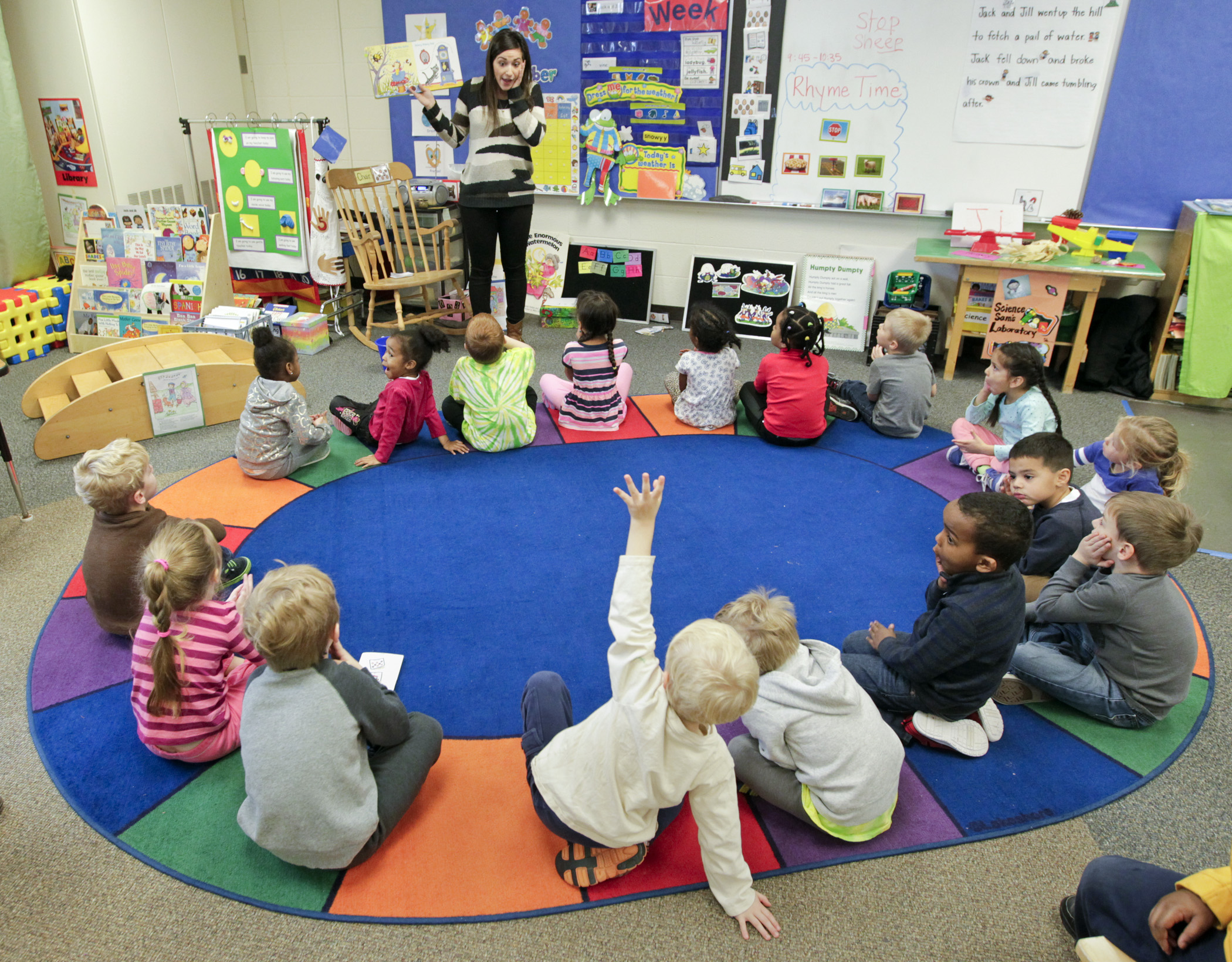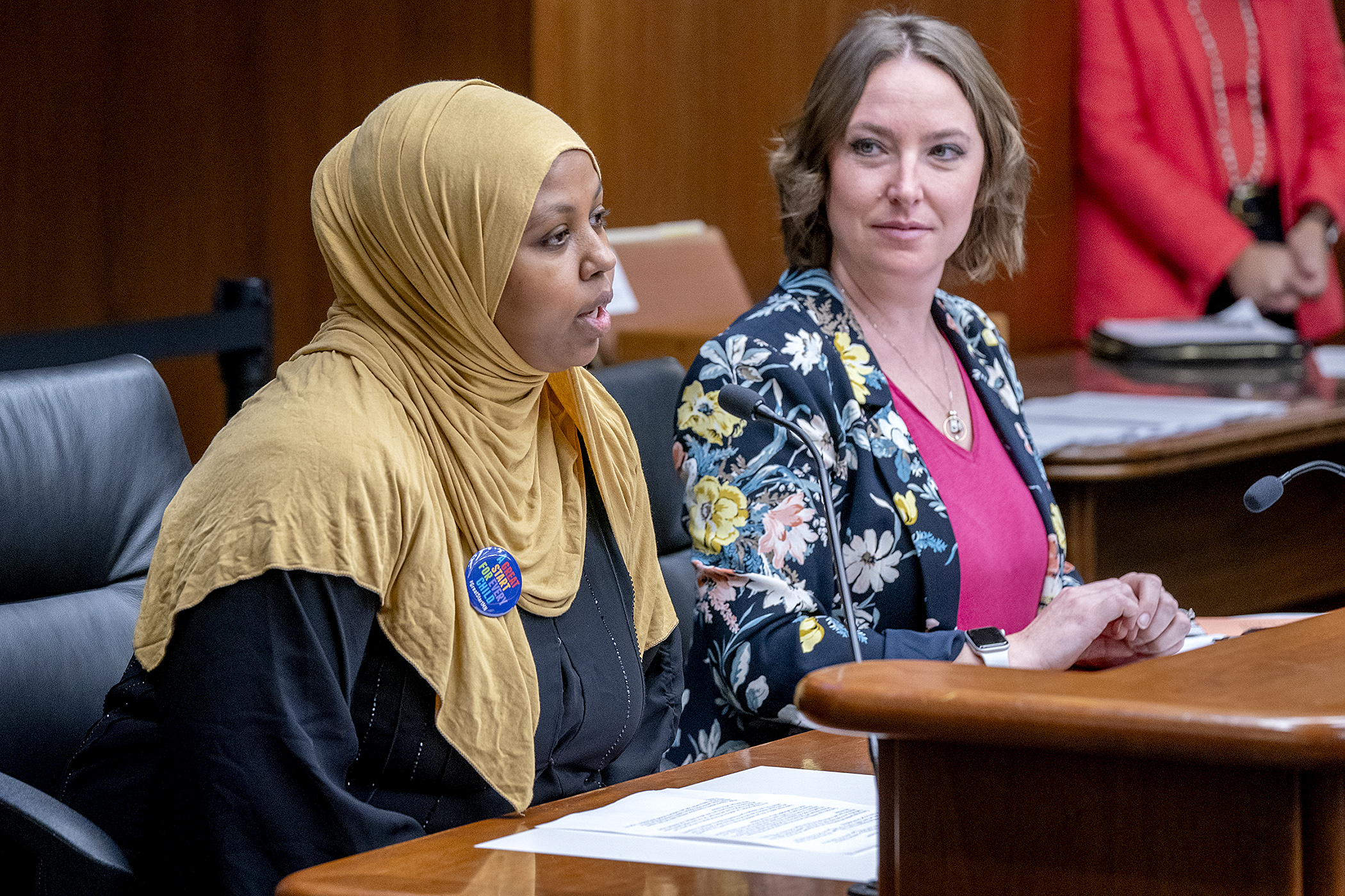Child care crisis, workforce crisis meet in House hearing

For Suzanne Temple-Gumm, a high school teacher for 17 years who is married with two small children and expecting again in a few months, child care costs will soon total over $45,000 per year. That’s more than the cost of her family’s groceries, mortgage, car payments, utilities and student loans combined.
Her husband, who works for a Fortune 1000 company, has had to take a second job. They have even considered asking her in-laws to move to Minnesota to help care for their kids as rental housing would be cheaper than day care.
“It’s hard. We’re exhausted. And I do not believe it should be this hard for a family to make ends meet when both parents are college educated and working more than full time,” she said.
For Ifrah Nur, director at Bloomington’s South Metro Childcare Academy, child care costs prevent families from walking in the door. Only one of the three shifts used to provide care for 12 hours each weekday has a full enrollment.
“As I child care provider, I am offering services that almost no one can pay for, but I cannot afford to charge any less and stay open,” Nur said.
Their stories illustrate the child care affordability crisis that confronts many Minnesotans. And it’s that problem a bill heard by lawmakers during a joint House hearing Thursday would attempt to address.
Sponsored by Rep. Carlie Kotyza-Witthuhn (DFL-Eden Prairie), HF3681 would establish a great start affordability scholarship program to help more families access high-quality early care and learning for kids from birth to kindergarten.
Thursday’s meeting was a joint informational hearing between the House Children and Families Finance and Policy Committee and the House Economic Development Finance and Policy Committee. No action was taken.
Kotyza-Witthuhn said that despite the money invested by the Legislature last year for programs to help the lowest-income citizens, such as child care assistance, early learning scholarships, Head Start and school-based prekindergarten, more must be done.
“We know there is a huge gap in support for nearly 75% of Minnesota families who make too much money to qualify for these existing programs, but not nearly enough to afford both child care and other necessities,” she said.
The new program would provide scholarships to families with children under age five who earn less than 150% of the state’s median income, which was $188,468 in federal fiscal year 2023 for a family of four. To be eligible, the children could not receive child care assistance or an early learning scholarship concurrently.
 Ifrah Nur, director of South Metro Childcare Academy, testifies Thursday in support of HF3681 before a joint House committee hearing. Alongside Nur is Rep. Carlie Kotyza-Witthuhn, the bill sponsor. (Photo by Michele Jokinen)
Ifrah Nur, director of South Metro Childcare Academy, testifies Thursday in support of HF3681 before a joint House committee hearing. Alongside Nur is Rep. Carlie Kotyza-Witthuhn, the bill sponsor. (Photo by Michele Jokinen)An ongoing appropriation from the General Fund to pay for the program would begin in fiscal year 2024, but the bill does not yet specify those amounts, which could come after next week’s updated budget forecast.
Rep. Hodan Hassan (DFL-Mpls), who chairs the economic development committee, said the child care crisis is also a driver of the workforce crisis. She recalled the first time she got the bill from day care for her 4-year-old daughter and saw it cost more than her mortgage.
”People aren’t joining the workforce because If I have to pay $2,000 for child care I might as well just take care of my own child,” Hassan said.
Rep. Walter Hudson (R-Albertville) said he acknowledges child care is an issue of great importance but said the bill has “multiple blind spots” including long-term fiscal sustainability. He noted the appropriations in the bill language are currently blank and said members need to know not just what the program will cost now, but what the cost to maintain it will be.
“Those are questions that definitely need to be answered,” Hudson said.
Hassan said the hearing had demonstrated child care needs although opinions may differ on how to address them.
“We all understand that our families need help and we should step up,” she said.
Related Articles
Search Session Daily
Advanced Search OptionsPriority Dailies
Legislative leaders set 2026 committee deadlines
By Lisa Kaczke Legislative leaders on Tuesday officially set the timeline for getting bills through the committee process during the upcoming 2026 session.
Here are the three deadlines for...
Legislative leaders on Tuesday officially set the timeline for getting bills through the committee process during the upcoming 2026 session.
Here are the three deadlines for...